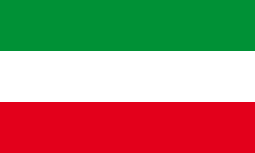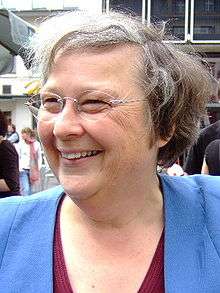North Rhine-Westphalia state election, 1990
North Rhine-Westphalia state election, 1990

|
|
|
|
| All 239 seats of the Landtag of North Rhine-Westphalia |
| |
First party |
Second party |
Third party |
| |
 |
 |
|
| Leader |
Johannes Rau |
Norbert Blüm |
Achim Rohde |
| Party |
SPD |
CDU |
FDP |
| Last election |
125 seats, 52.1% |
88 seats, 36.5% |
14 seats, 6.0% |
| Seats won |
123 |
90 |
14 |
| Seat change |
-2 |
+2 |
+/- 0 |
| Popular vote |
4,644,431 |
3,409,953 |
535,656 |
| Percentage |
50.0% |
36.7% |
5.8% |
| Swing |
-2.1% |
+1.0% |
-0.2% |
|
| |
Fourth party |
|
| |
 |
|
| Leader |
Bärbel Höhn |
|
| Party |
Green |
|
| Last election |
0 seats, 4.6% |
|
| Seats won |
12 |
|
| Seat change |
+12 |
|
| Popular vote |
469,098 |
|
| Percentage |
5.1% |
|
| Swing |
+0.5% |
|
|
|
|
The North Rhine-Westphalia state election, 1990 took place on May 13, 1990 to elect the 239 members of the Landtag (state legislature). It resulted in clearly confirming the state government led by Johannes Rau, providing the SPD with an absolute majority of seats for the third time after 1980 and 1985. Rau, who received the opportunity to challenge chancellor Helmut Kohl in the 1987 federal election also because of his strong performance as head of government in Germany's most populous state, was defeated by Kohl so that he stayed in North Rhine-Westphalia and remained vice chairman of the federal SPD.
The CDU chose Norbert Blüm, federal minister for labour and social affairs, as their candidate for the office of Minister-President because due to an absence of 24 years from power at that time, the party lacked charismatic leaders on the state level.
The FDP could maintain its share of votes whereas the Greens, who failed to pass above the 5%-threshold in the 1985 state election, returned to the Landtag.


